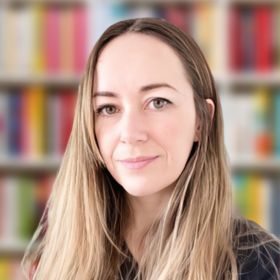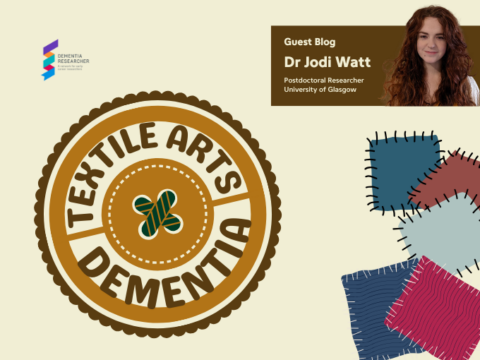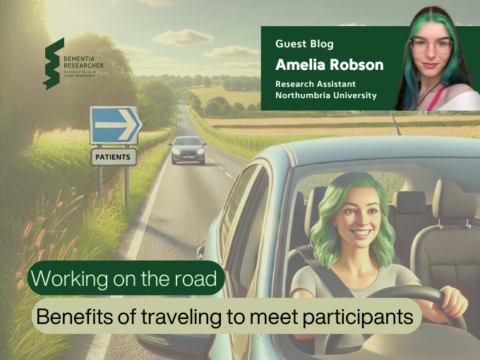By way of introduction, my name is Emily Spencer. I’m currently a second(ish) year PhD student at University College London, and I’ve recently joined the team of regular contributors to the Dementia Researcher blog. Terrifyingly, I’m currently 39 weeks pregnant (!), so over the coming months I’ll be sharing my experiences of being a researcher, but also becoming a parent, very much in real time. But before that, perhaps we can get better acquainted?
My route into academia has been slightly chaotic. I grew up in a relatively large family – second of four – and it’s safe to say that I was always considered the ‘academic’ one. In reality I was never any brighter than my older sister; probably just a lot more socially awkward and introverted, happiest buried in a book, which I suppose lends itself nicely to your parents assuming you’re some kind of savant. Despite my parents’ best efforts at encouragement, I was in honesty a pretty lazy student. At sixth form, the idea of applying to university seemed like a lot of effort, so I just didn’t bother. One of my psychology teachers eventually sat me down at the end of the year to show me the UCAS website, as if that were my sole barrier. The first course that came up in the search, within whatever parameters he’d entered, was a four-year BSc in Psychology at Bath, so I said, ‘Fine, I’ll go there’. And after a year working in a record store, out of apathy, I did.
Going to Bath taught me two things: firstly, that natural smarts will only take you so far, and secondly, the value of a year in industry. My third year was spent at Keele University, working on research looking at the creation of false memories. Admittedly, my placement was slightly less exotic than many of my peers (my housemate went to Harvard, another friend went to Australia, while I was living it up in Stoke-on-Trent), but it meant that by the time I left Uni I had a year’s research experience and even a publication! Success!
After Uni I managed to find myself a temp job working as a research administrator at an international think tank. After a couple of months they offered me a job at their Brussels office. Not one to make wise life choices, I decided to leave, move back to Stoke, and work for minimum wage at Alton Towers, then Waterstones, a car insurance place, a music venue. Eventually I wound up working at a private psychiatric hospital for two years, before moving back to my hometown and being offered a Research Assistant role at Cambridge University.
My time at Cambridge was great. I worked in a very small team – for most of the 3 or 4 years it was just me and one more senior researcher – on a study looking at primary care-based provision of end-of-life and palliative care. It was a great job, but it was sobering. We reviewed the notes of 400 patients who had recently died, as well as interviewing clinicians involved with their care, and bereaved carers. Knowing these individuals’ stories felt like a big responsibility, but also a privilege. At the same time as working on this study, I was doing some honorary work as an assistant psychologist, both within the local youth offending service, and a psychiatric assessment unit. I had decided that I was going to study for a doctorate in clinical psychology – my parents couldn’t have been more proud.
Unfortunately, as we’ve ascertained, I’m not one to make life easy for myself. In a last-minute curveball, I elected not to apply for the doctorate, much to my parents’ absolute dismay and horror. Instead, for the next 6 years, I worked as a musician, in the slightly niche setting of the Church of England. The impact of working in that role and in that context is something I could unpick for some time, but safe to say it probably wasn’t a match made in heaven (no pun intended). As it happened, the pandemic wasn’t particularly accommodating for roles centred on live performance, so in 2020 I found myself scrambling around for something else to do. In honesty, going back to research seemed like the path of least resistance.
I have no idea at all why they took a chance on me, but in early 2021 I was offered an RA job at UCL, working on a mixed-methods feasibility and implementation study. The study was evaluating an intervention in practice, looking to improve care provision for people living with dementia and their families. Going back into research, into an academic environment, was frankly terrifying. I’d left Cambridge University in 2015, and by now it was 6 years later, and I was convinced that I’d somehow tricked them during my interview. I was equally convinced that the intervening years of working as a musician had entirely deskilled me, and what I would have to offer wouldn’t be good enough.
What I found surprised me. The whole environment was a breath of fresh air. I loved the work I was doing, the team I worked with trusted me and entrusted things to me, and the participants I got to know – people with dementia, carers, healthcare professionals – shared so much of themselves. I felt like I’d finally come alive. 6 months after I started at UCL, I was encouraged to apply for a PhD within the department. I’ve been working on that PhD now since April 2022, part-time initially while finishing off the other project, and am loving every minute of it. The PhD is looking at communication within advance care planning for people with dementia – marrying together my recent work and what I did at Cambridge all those years ago.
So that’s how I got here. The path less travelled, maybe, but finally in the right place.

Emily Spencer
Author
Emily Spencer is a PhD Student at University College London looking at improving how GPs communicate with people with dementia and their family carers about their future care. Emily previous had a 5 year career break to pursue a career as a muscian, and has previously undertaken research on improving the care people with dementia receive from their GP practice, as well as end-of-life and palliative care provision in the community. Emily is also a new mum and will be writing about her experiences navigating motherhood and a research career.

 Print This Post
Print This Post






